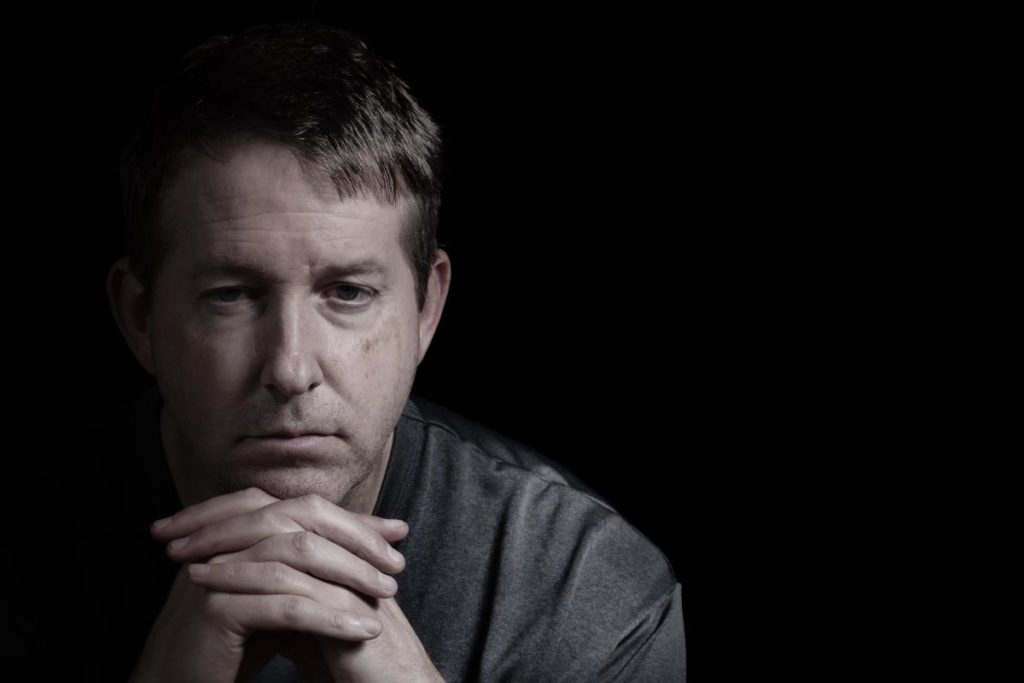The U.S. is facing a major opioid crisis, and heroin is one of the most common opioids sold on the street. While many people want to stop using heroin, withdrawal from the drug can be highly uncomfortable. That’s why heroin detox should always be done under the supervision of a qualified, experienced medical professional. Texas Recovery Center offers heroin detox services to help individuals safely and comfortably manage their withdrawal symptoms. Call us at 214.295.6503, and our team can help you better understand heroin addiction treatment options.
What Is Heroin?
Heroin is a form of opioid sold as a street drug. It typically comes as a white or brown powder and is often mixed with flour, baby powder, or something else of a similar texture. It can also come as a sticky or hard black substance known as black tar heroin. Heroin is commonly used by snorting, smoking, or injecting it.
Snorting heroin in powder form is the most common way of using it. However, some people choose to smoke or inject it instead. Other heroin tools may include:
- Lighters used to heat the substance
- Material to restrict blood flow in the arm, like a band, belt, or tightly tied piece of fabric
- Needles for injecting heroin into the bloodstream
- Hollowed-out pens used for snorting
- Straws used for snorting
- Rolled-up dollar bills used for snorting
- A pipe for smoking
- Small baggies used for storage
- Small balloons used for storage
- Little pieces of tin foil used for storage
Withdrawal symptoms from opioids, including heroin, are the same regardless of how the drug is consumed. However, long-term health side effects can differ based on different methods of using heroin.
Early Heroin Withdrawal Symptoms
Early stages of heroin withdrawal typically begin about three to five hours after the last dose. Heroin withdrawal symptoms usually include:
- Anxiety or unreasonable fear
- Irritation or becoming easily annoyed
- Constantly thinking about getting opioids
- Beginning to experience physical withdrawal symptoms (listed below)
Peak Heroin Withdrawal Symptoms
Peak symptoms typically start within a day of the last dose, but sometimes they do not start for as long as 30 to 70 hours. These symptoms can include:
- Intense mood swings
- Strong physical cravings for the drug
- Convincing yourself or others that you don’t just want the drug
- Digestive issues, including vomiting, diarrhea, and constipation
- A high heart rate
- High blood pressure
- Intense sweating
- Watery eyes
- Runny nose
- Extreme changes in body temperature, like going from hot to cold
- Fever
- Other flu-like symptoms
These symptoms can be uncomfortable but typically improve within a few days. However, heroin withdrawal can have lingering effects for weeks or even months.
Signs of Heroin Withdrawal
Peak heroin withdrawal symptoms can last as long as a week. After about a week, those symptoms will lessen and gradually become milder. Eventually, they will go away entirely. While opioid withdrawal itself is not usually deadly, the results of symptoms, like dehydration, fever, stomach, and heart issues, can all be seriously dangerous.
Heroin detox should only be done under the supervision of medical professionals. Overdosing is extremely dangerous and deadly if not treated properly and quickly. You need to call 911 if someone is experiencing things like:
- Excessive constipation
- A lot of vomiting
- Making gurgling noises or choking in their sleep
- Low blood pressure
- Skin that looks grey or bluish-purple, depending on their skin
- No visible signs of breathing
- Unusual or uneven breathing
- Skin and face that is cold or clammy
- Irregular heartbeat
- No detectable heartbeat
- Unresponsive to things like loud noises
- Appear to be aware of their surroundings but cannot respond
If you believe a person is overdosing on heroin, they need immediate medical attention. Naloxone (Narcan) can be used to treat emergency heroin overdoses. Naloxone can be privately bought as a nasal spray for emergencies, but a severe overdose may require more than one dose of naloxone. Because of this, a person experiencing a heroin overdose must receive professional medical attention as quickly as possible.
Recovery at Texas Recovery Center
Here at Texas Recovery Center, we do not just treat addiction as a physical illness. With our rehab for heroin, we treat opioid addiction as a complex physical, psychological, emotional, and social reality. This means we offer a variety of in-person treatment options to help people end their addiction to heroin but also to prepare for what life will be like in recovery.
Addiction treatment at Texas Recovery Center is not identical for any two clients. Treatment is always personalized to meet specific clients’ behavioral, physical, psychological, and social needs. Treatment options at Texas Recovery Center include:
- Cognitive-behavioral therapy (CBT)
- Dialectical behavior therapy (DBT)
- Motivational interviewing (MI)
- Medication-assisted treatment (MAT)
- Mindfulness and stress-management practices
- Adventure therapy
- Recreational and art therapies
- Family therapy and support
We’re here to help you or anyone you know who is facing heroin addiction. Don’t hesitate to contact us for more information about our heroin rehab program and how we can support your journey toward long-term recovery.
Get Help Today with Texas Recovery Center
Heroin addiction treatment can be challenging and overwhelming, but it is not impossible. When you have the support and resources available, heroin addiction recovery becomes more attainable. Here at Texas Recovery Center, we aim to guide clients through their heroin addiction treatment journey and provide them with the necessary tools for a successful recovery experience.
If you or someone you know is struggling with heroin addiction, please do not hesitate to reach out to us for help. Our admissions team is available. Contact Texas Recovery Center today at 214.295.6503 to learn more about our heroin detox and rehab options.













